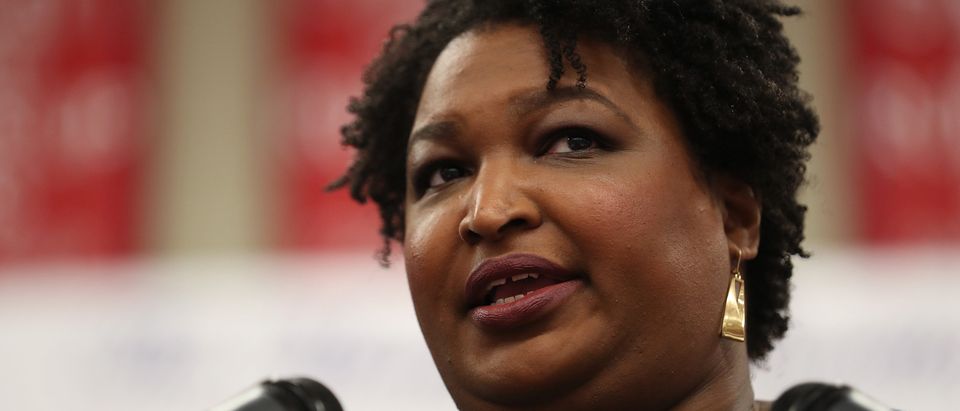Bill Bryan, Under Secretary for Science and Technology at DHS, talked about the half-life of the coronavirus on surfaces like door handles and stainless steel surfaces, saying that when they “inject” UV rays into the mix along with high temperatures and increased humidity that the virus dies quickly.
Bryan continued by noting that DHS also tested if certain types of disinfectant could kill the coronavirus.
“We’ve tested bleach, we’ve tested isopropyl alcohol on the virus, specifically in saliva or in respiratory fluids, and I can tell you that bleach will kill the virus in five minutes,” Bryan said. “Isopropyl alcohol will kill the virus in 30 seconds, and that’s with no manipulation, no rubbing. Just bring it on and leaving it go. You rub it and it goes away even faster.”...
Immediately following these remarks is where Trump states, "So, I’m going to ask Bill a question that probably some of you are thinking of if you’re totally into that world, which I find to be very interesting. So, supposing when we hit the body with a tremendous, whether it’s ultraviolet or just very powerful light, and I think you said that hasn’t been checked, but you’re going to test it. And then I said supposing you brought the light inside the body, which you can do either through the skin or in some other way. And I think you said you’re going to test that too. Sounds interesting. And then I see the disinfectant, where it knocks it out in a minute, one minute. And is there a way we can do something like that by injection inside or almost a cleaning? Because you see it gets in the lungs and it does a tremendous number on the lungs, so it’d be interesting to check that, so that you’re going to have to use medical doctors with, but it sounds interesting to me. So, we’ll see, but the whole concept of the light, the way it kills it in one minute. That’s pretty powerful."
A few moments later, ABC News reporter Jon Karl asked Bryan, “The president mentioned the idea of a cleaner, bleach and isopropyl alcohol emerging. There’s no scenario where that could be injected into a person, is there?”
“No, I’m here to talk about the finds that we had in the study,” Bryan responded. “We don’t do that within that lab at our labs.”
Trump then clarified his remarks: “It wouldn’t be through injections, you’re talking about almost a cleaning and sterilization of an area. Maybe it works, maybe it doesn’t work, but it certainly has a big effect if it’s on a stationary object.”
Trump later raised the possibility of whether UV rays could kill the coronavirus if it was on a person’s skin, in particular if it were on their hands.
“If they’re outside, right, and their hands are exposed to the sun, will that kill it as though it were a piece of metal or something else?” Trump asked.
“I don’t want to say it will at the same rate because it’s a non-porous surface, but what we do know is that we looked at the worst case scenario and the virus lives longer on non-porous surfaces,” Bryan responded. “So porous surfaces, it doesn’t live quite as long, so in theory what you said is correct.”
















